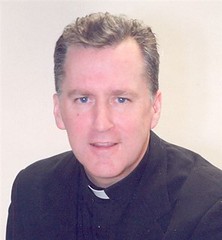Modern rationalists deny even the possibility of miracles. But while it is reasonable to ask for evidence before believing in miracles, it’s both closed-minded and irrational to deny the possibility of miracles beforehand. Miracles are possible because God, who is the author of natural and scientific laws, has the power to suspend these laws. It takes faith to believe in miracles, but this faith is not unreasonable. Faith gives access to knowledge that is beyond, but not contrary to reason.
In the Bible, we see that miraculous events and other signs of God’s providence accompanied the conception and birth of such figures as Isaac (Genesis 18,10-14), Samson (Judges 13, 5), Samuel (1 Samuel 1, 20) and John the Baptist (Luke 1:24), among others. But the conception and birth of Christ are absolutely unique to show that Jesus Christ is truly God, the Second Person of the Holy Trinity and that he was not conceived through a human father. St. Joseph cared for Jesus as his adopted father.
In the Gospel, the angel Gabriel says to Mary: “The Holy Spirit will come upon you and the power of the Most High overshadow you”. (Luke 1, 35)
The word overshadow was familiar to Mary, who knew the Scriptures well. Often in the history of Israel God’s presence was revealed in a bright cloud whose shadow covered the people: the pillar of cloud that led Israel to freedom through the desert; the cloud in which Moses spoke with God; and especially the bright cloud which symbolized God’s presence in his temple.
So when we hear these words, we are meant to think of the Lord’s presence in his temple. We are meant to see that in this moment in the little town of Nazareth, God is making for himself a new temple, so that in his Son, born on earth of the Virgin Mary, he can be present with his people forever
2 Samuel tells the story of King David’s plan to build a temple for the Lord, but through the prophet Nathan God tells David that instead he will build a ‘house’ for him
“Moreover the LORD declares to you that the LORD will make you a house. When your days are fulfilled and you lie down with your fathers, I will raise up your offspring after you, who shall come forth from your body, and I will establish his kingdom. I will be his father, and he shall be my son. When he commits iniquity, I will chasten him with the rod of men, with the stripes of the sons of men; And your house and your kingdom shall be made sure for ever before me; your throne shall be established for ever.” (2 Samuel 1, 11-16)
The ‘house’ God speaks of is a royal house, a dynasty from which the king of the world would one day come. In today’s Gospel we see this very prophecy being fulfilled.
The fulfillment of this prophecy came when the Archangel Gabriel says to Mary “Behold, you will conceive in your womb and bear a son, and you shall name him Jesus. He will be great and will be called Son of the Most High, and the Lord God will give him the throne of David his father, and he will rule over the house of Jacob forever, and of his kingdom there will be no end." (Luke 1, 31-33)
Mary consents. Mary’s “Yes” reverses the “No” of Eve. Through Eve sin and death entered the world. Through Mary’s “Yes” grace, love, life and truth enter the world in Jesus Christ. Jesus is conceived, son of Mary, son of David. The Divine Word becomes flesh. (cf. John 1,14) He is king forever; and in him God is present among his people more wonderfully than in any temple.
All this is made possible because a young Jewish girl says yes: “Behold, I am the handmaid of the Lord. May it be done to me according to your word.” (Luke 1, 38) Mary opens her life and her whole being in welcome to the Lord, and so becomes the mother of our Savior. She is the perfect image of what Advent and Christmas should mean for us, for we too are called to make of ourselves a house where the Lord can dwell among his people.
Saint Augustine in his comments on this Gospel he said a striking thing: Mary is blessed beyond all women because she received the Son of God in her body; but she is even more blessed because she first received the Word of God in her heart.
He also says of Mary “Him who the heavens cannot contain, the womb of one woman bore. She ruled our ruler; she carried Him in whom we are; she gave milk to our bread.”
Mary’s role is Mother of the Savior and Mother of God is absolutely unique, but like Mary, we are called to in give a home in our hearts to Lord. St. Paul reminds us that we are temples of the Holy Spirit. Therefore we are called to live holy lives, lives of integrity and goodness. He writes “Do you not know that your body is a temple of the Holy Spirit within you, whom you have from God, and that you are not your own? For you have been purchased at a price. Therefore glorify God in your body.” (1 Corinthians 6:19–20)
So in this final week before Christmas, let Mary be our example of faith. Like Mary we are called to welcome the Lord into our hearts. May we live lives of holiness and more fully reflect the image and likeness of God. May remember our high calling to be temples of the Holy Spirit and not offend God by committing serious sin.
